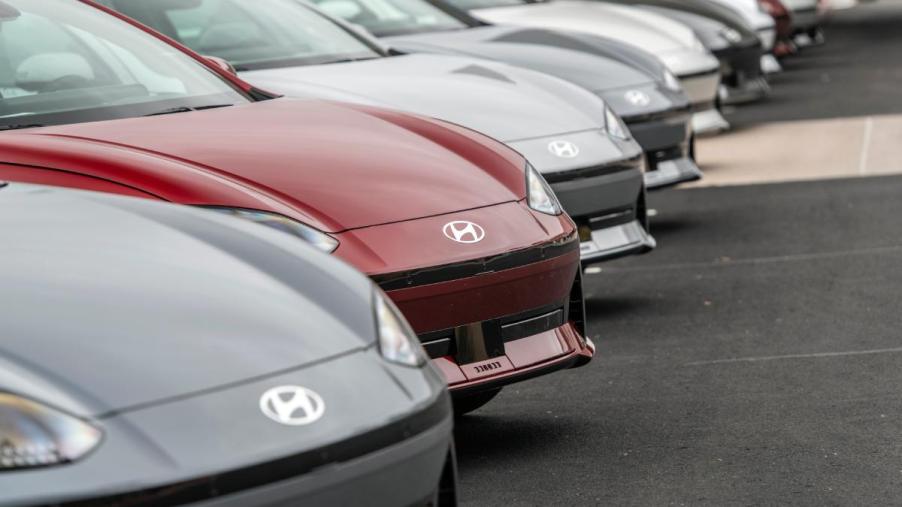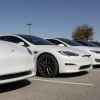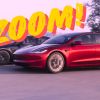
Hyundai Is Inching Toward Its EV Goals
The automotive industry is currently undergoing a significant transformation toward electric mobility. With its strong commitment to innovation and sustainability, Hyundai is one of the front-runners in the electrification race. The automaker has been making strides in the EV market and progressively inching towards its EV goals.
July was a huge month for Hyundai EVs
July proved to be a huge month for the automaker’s EVs, achieving several milestones that emphasized its commitment to electrification. Hyundai sold 66,527 units in July alone, marking a 10% change over the 60,631 units it sold the previous July.
The total number of battery electric vehicles sold by the brand accounted for only 10% of retail sales. As modest as this figure sounds, it represents a significant improvement compared to previous years. The Hyundai Ioniq 5 was among the EVs that set the all-time sales record for the automaker.
According to Hyundai News, the Ioniq model didn’t sell any units in July 2023, representing a 0% growth since July 2022. However, the Ioniq 5 had impressive sales figures, with Hyundai selling 4,135 units in July. This represents a 109% growth from the 1,978 units sold in the previous year, indicating the vehicle’s rising demand and popularity.
The Hyundai Ioniq 6 is a newer addition to the automaker’s BEV lineup and already has a promising start, having sold 1,745 units in 2023. The model had no sales data for July 2022, resulting in a 0% month-over-month change.
Another key player in Hyundai’s EV lineup is the Kona, which had a robust month in July 2023. According to the media release, the Kona sold 6,123 units in July 2023 alone. This marks a notable 44% growth compared to the 4,235 units sold in the same month in the previous year.
Hyundai is investing a lot of money into EVs
Hyundai aims to be among the top three EV makers by 2030, and the company is already working on ways to get there. The brand announced in April that it plans on investing $18 billion into EV making amid South Korea’s efforts to lead the global EV production race.
Hyundai plans to expand its global EV production to 3.64 million units and its domestic production to 1.51 million units. The automaker claims that by 2030, its total EV lineup will include 31 models, including those from its sister companies, Genesis and Kia.
Hyundai plans to use the money to further its research and development for EVs. It also plans to reveal a manufacturing platform for each car class to speed up development.
Preparing for the future while maintaining its consumer base with traditional cars
Hyundai’s approach to its EV lineup reflects a well-thought-out balance between preparing for an all-electric future while continuing to offer traditional cars that customers want. This indicates the brand’s capability to adapt to a rapidly changing landscape. The automaker is proactively embracing EVs with a growing lineup of hybrids, BEVs, and plug-in hybrids.
These plans align with the increasingly popular global trend toward cleaner and more sustainable energy and transportation. EVs like the Kona electric and Ioniq series are not only good for the environment but also save money through reduced fuel consumption, thus appealing to eco-conscious customers.
The carmaker also understands that not all its consumers are ready to fully leave gasoline-powered vehicles behind, so it still caters to its traditional vehicle market. Hyundai continues to appeal to its consumers by offering a range of reliable and affordable cars such as the Santa Fe, Tucson, and Sonata.
This balance helps Hyundai maintain its competitive edge in the auto world while still keeping its traditional car market engaged and interested.



